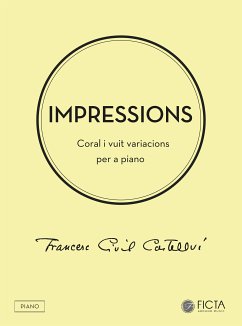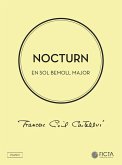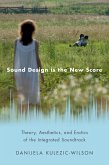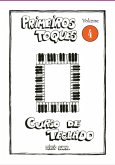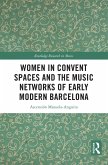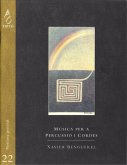Impressions, coral i vuit variacions (1938-1962) fou escrita a Versalles i és una de les obres més imponents i extenses de Francesc Civil per a piano sol. El tema amb què arrenca la partitura, un coral que ben bé hauria pogut escriure César Franck, és de caràcter solemne i organístic. A partir d'aquest desfilen una sèrie de variacions que evoquen els diferents estats d'ànim del compositor davant la situació bèl·lica del seu país. Escrita en plenitud de facultats, aquesta obra, manifestament deutora d'un ensenyament rigorós i complet, enlluerna per la seva magistral escriptura pianística, per un agosarat llenguatge harmònic i per una saviesa contrapuntística sense parangó. Impressions, coral i vuit variacions (1938-1962) fué escrita en Versailles y es una de las obra mas imponentes y extensas de Francesc Civil para piano solo. El tema con el que arranca la partitura, un coral que bien habría podido escribir César Franck, es de carácter solemne y organístico. A partir del mismo desfilan una serie de variaciones que evocan los diferentes estados de ánimo del compositor ante la situación bélica de su país. Escrita en plenitud de facultades, esta obra, manifiestamente deudora de una enseñanza rigurosa y completa, deslumbra por su magistral escritura pianística, por un atrevido lenguaje armónico y por una sabiduría contrapuntística sin parangón. Impressions, chorale and eight variations (1938-1962) was wrote by Francesc Civil in Versailles and is his most striking and longest work. The opening theme, a chorale that could well have been written by César Franck, has a solemn organistic character. This leads on to a series of variations that evoke the composer's feelings about the war in his home country. Written at the height of his powers, this work, which clearly owes a great deal to his rigorous, ample training, dazzles for its masterful piano scoring, the bold harmonic language and the consummate contrapuntal expertise.
Dieser Download kann aus rechtlichen Gründen nur mit Rechnungsadresse in A, B, BG, CY, CZ, D, DK, EW, E, FIN, F, GR, H, IRL, I, LT, L, LR, M, NL, PL, P, R, S, SLO, SK ausgeliefert werden.

